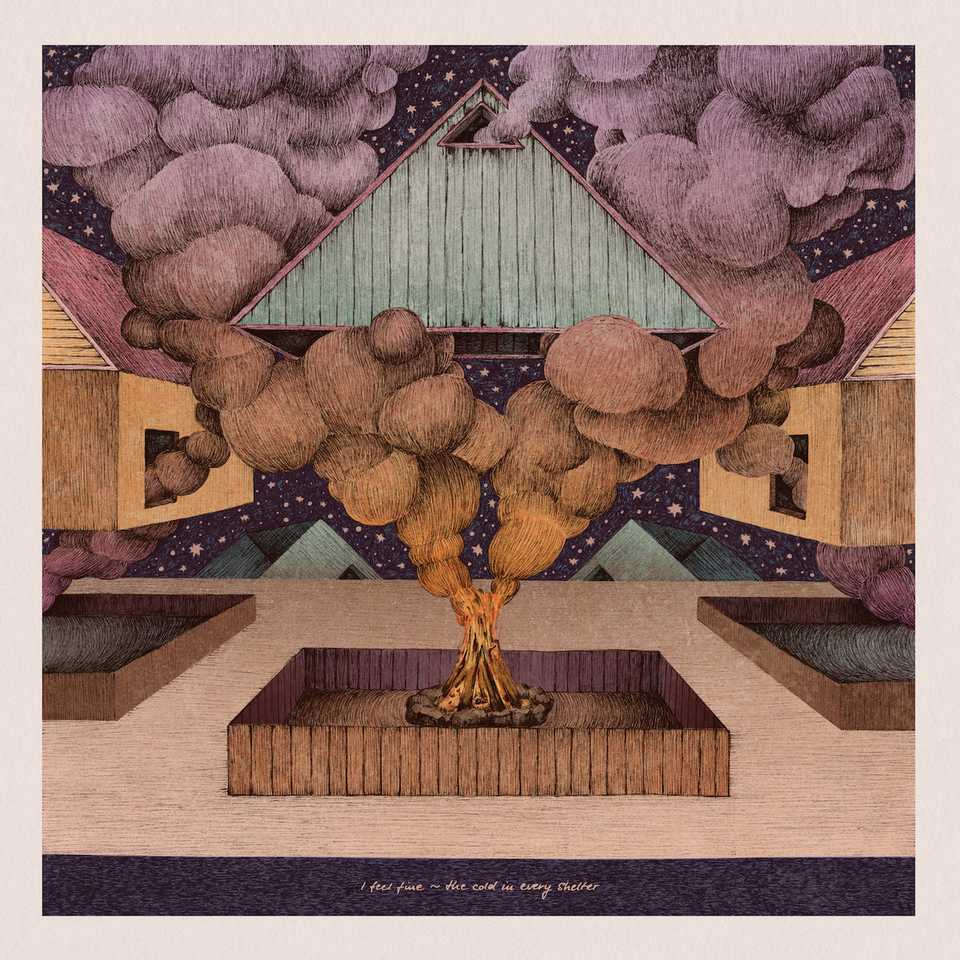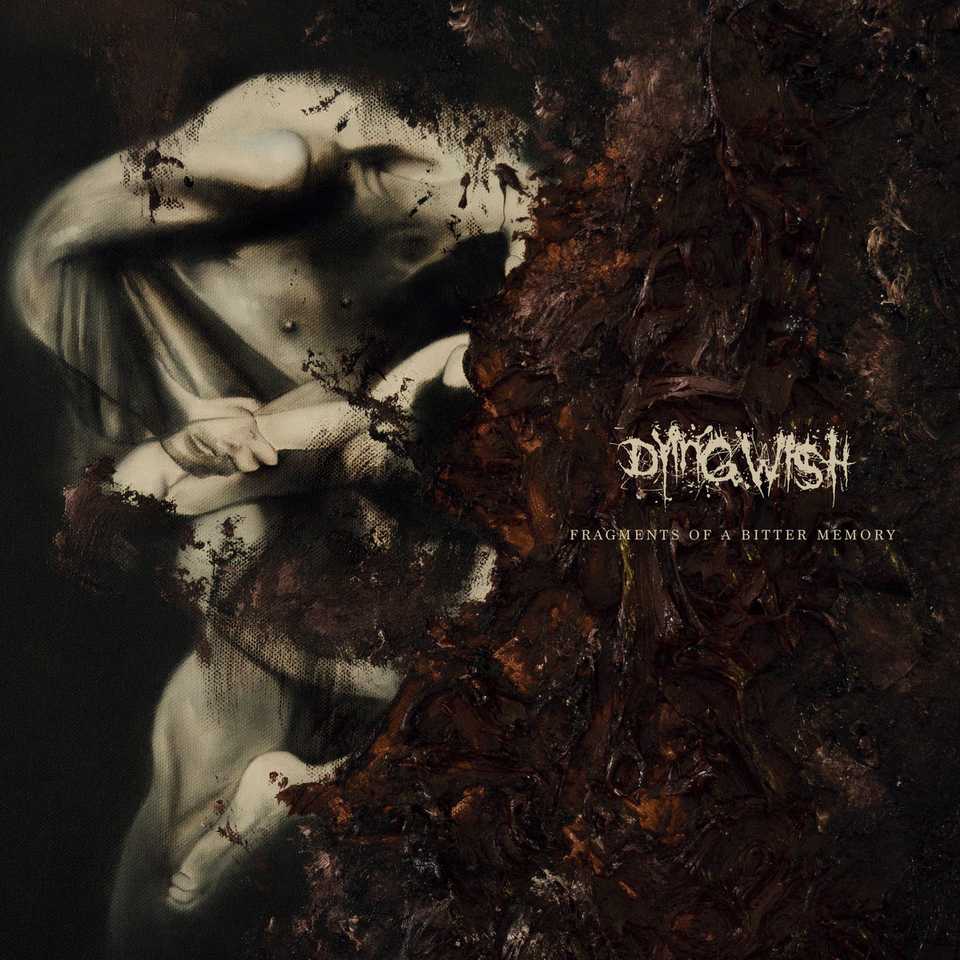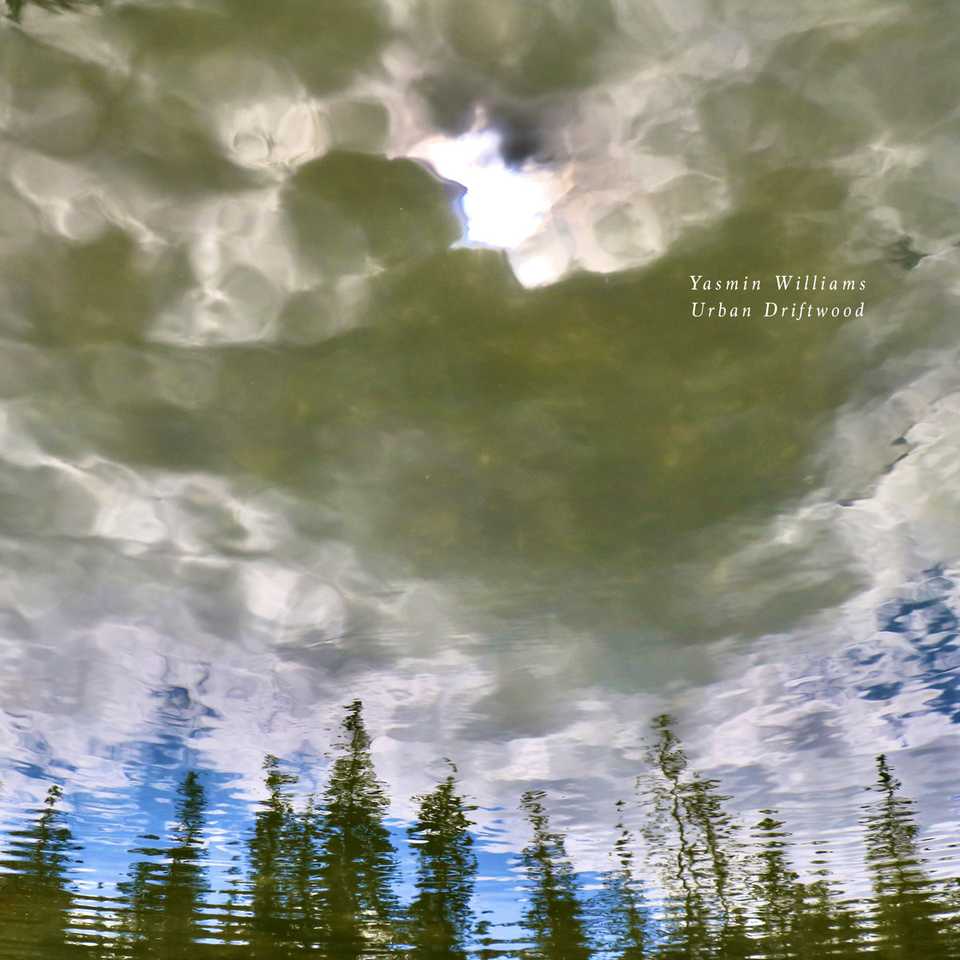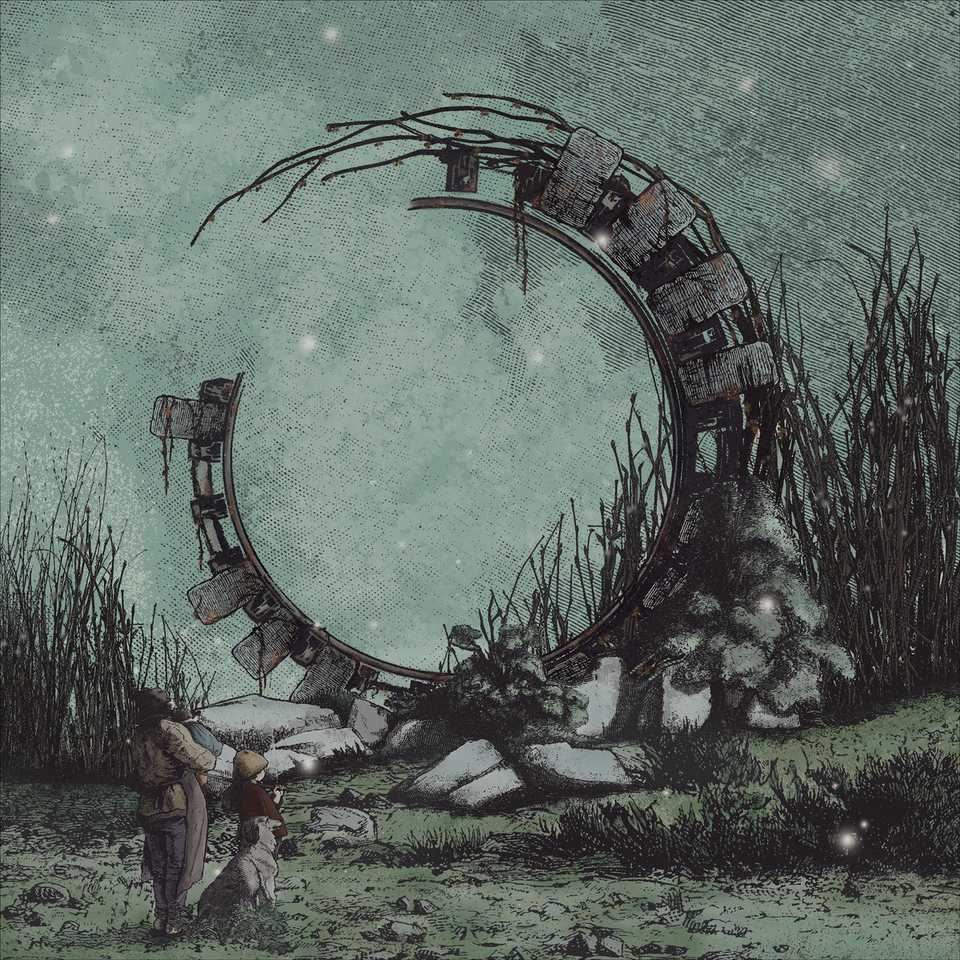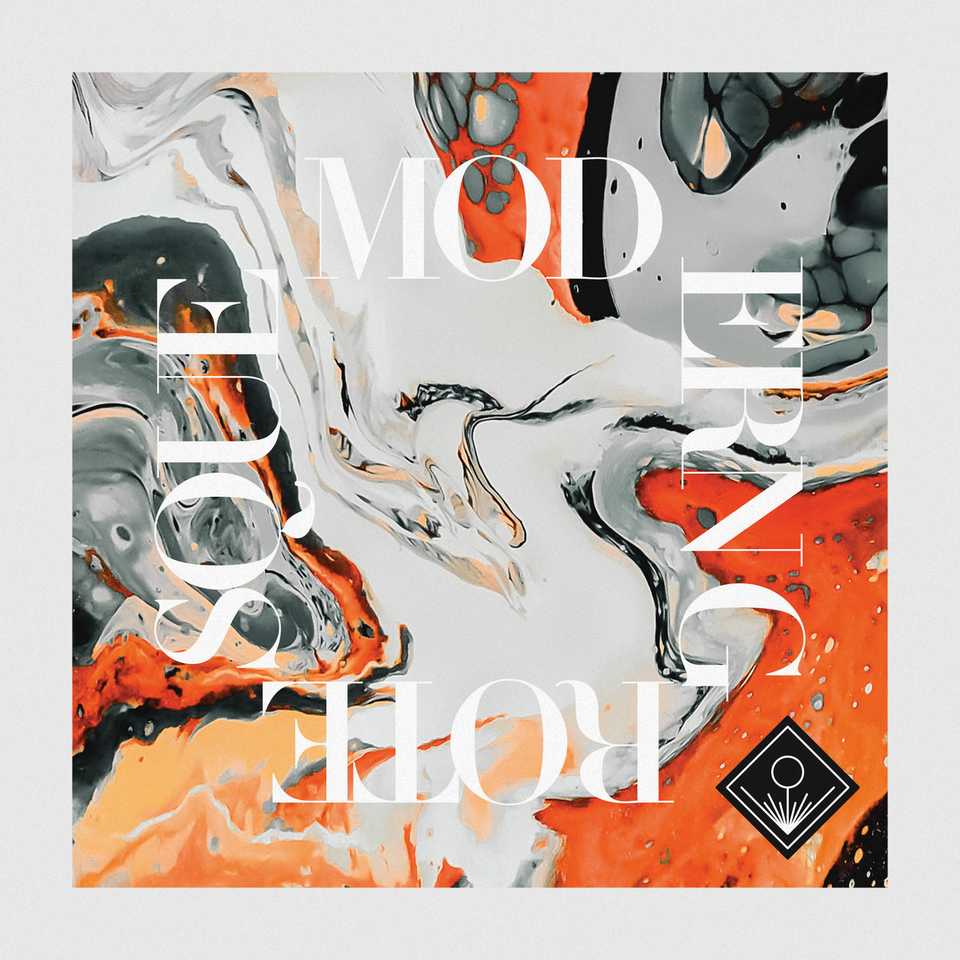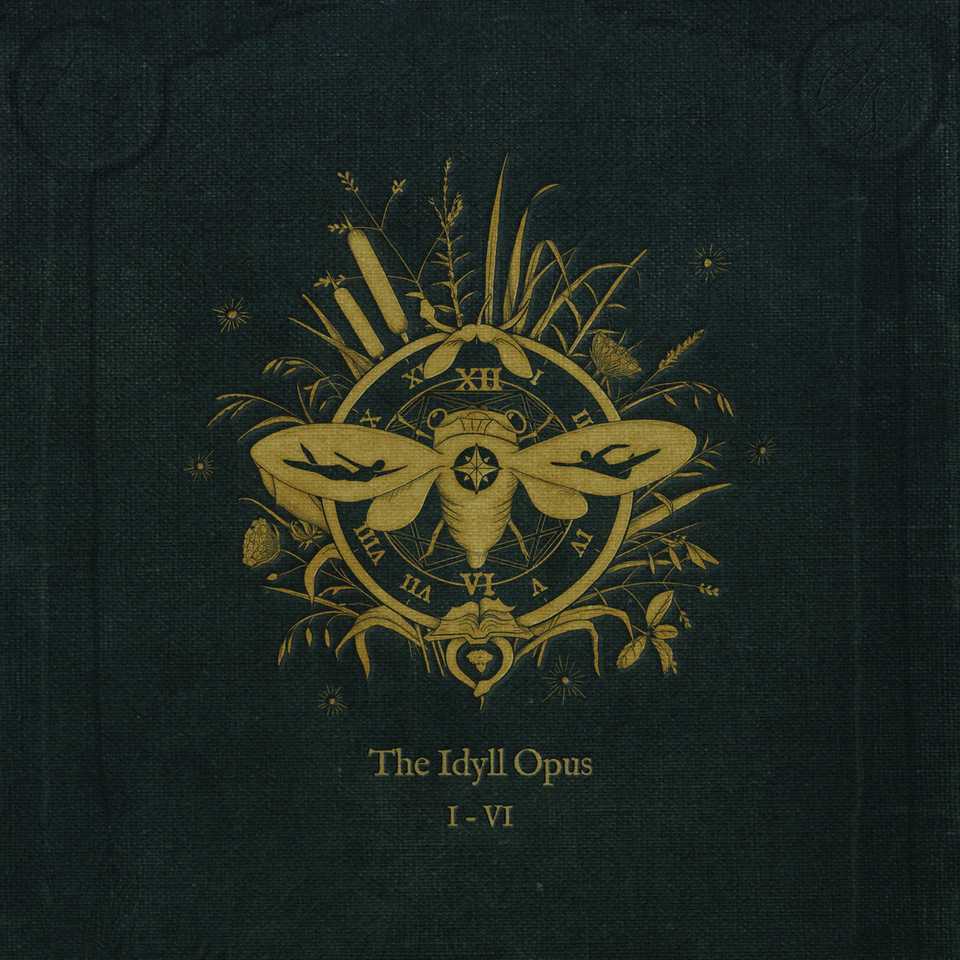Introduction, presence
Welcome reader to the only official list of my favorite albums from 2021 on the worldwide web. There’s not a lot I want to use this introductory section for—anything insightful that could have been said about the past year, its effect on music, and its trends, has probably already been said in some other album listicle on some more prominent internet forum.
I will only note that this year was incredibly exciting as a music listener, as bedroom artists let loose a torrent of pent-up creativity from the past year and a half of quarantine, and more prominent bands dropped a number of temporarily shelved projects as a brief window of touring cycles opened up this summer. I was shocked at how distant some of my favorite records were from my usual taste, but felt as though I left the year a listener with a broader vision and musical palette. This list is dedicated to the records that inspired, emboldened, and excited me the most.
Below is a list of my top 31 favorite albums (to get that clean 10/21 split in honor of the year at hand), featuring some personally curated genre tags, mood descriptors, and key tracks. I properly ranked the top 10, because it’s easier to meaningfully distinguish between #1 and #2 than #30 and #31. In addition, because they were the 10 records that I was most passionate about, I wrote blurbs for each to provide context and justify my adoration. I’ve embedded a corresponding Spotify playlist below with a corresponding cut off each release. Hope y’all enjoy and find something new to spin 📻
21 Favorites (unranked)
Panopticon - …And Again Into the Light
🎧 Black Metal - reflective, springtime
💿 Key Tracks: Moth Eaten Soul, The Embers at Dawn
The Armed - ULTRAPOP
🎧 Noise Rock / Hardcore - rambunctious, turbulent
💿 Key Tracks: MASUNAGA VAPORS, AN ITERATION
PinkPantheress - to hell with it
🎧 R&B / Bedroom Pop - soft, nocturnal
💿 Key Tracks: Just for me, I must apologize
MØL - Diorama
🎧 Blackgaze - triumphant, zealous
💿 Key Tracks: Vestige, Tvesind
Knoll - Interstice
🎧 Grindcore - dissonant, apocalyptic
💿 Key Tracks: Grasp, Loom of Wills
snow ellet - suburban indie rockstar
🎧 Pop Punk / Bedroom Pop - nostalgic, youthful
💿 Key Tracks: to some i’m genius, in reverie
Mare Cognitum - Solar Paroxysm
🎧 Black Metal - spacey, expansive
💿 Key Tracks: Terra Requiem, Frozen Star Divination
Frontierer - Oxidized
🎧 Mathcore - frenzied, dense
💿 Key Tracks: This Magnetic Drift, Removal of the Copper Iris and the Lightning Pill
One Step Closer - This Place You Know
🎧 Hardcore - expressive, anxious
💿 Key Tracks: Pringle Street, Hereafter
Nation of Language - A Way Forward
🎧 New Wave - synthetic, urban
💿 Key Tracks: This Fractured Mind, Across That Fine Line
A Great Big Pile of Leaves - Pono
🎧 Math Rock / Emo - sunny, playful
💿 Key Tracks: Swimmer, Beat Up Shoes
ERRA - ERRA
🎧 Metalcore - technical, brash
💿 Key Tracks: Electric Twilight, Snowblood
Lightning Bug - A Color of the Sky
🎧 Ambient Folk / Dream Pop - pastoral, lethargic
💿 Key Tracks: Song of the Bell, The Right Thing is Hard to Do
BRUIT ≤ - The Machine is burning and now everyone knows it could happen again
🎧 Post-Rock - revolutionary, haunting
💿 Key Tracks: The Machine is Burning, Renaissance
파란노을 (Parannoul) - To See the Next Part of the Dream
🎧 Shoegaze / Noise Pop - nihilistic, pensive
💿 Key Tracks: White Ceiling, Chicken
Lantlôs - Wildhund
🎧 Shoegaze / Post-Metal - surreal, lush
💿 Key Tracks: Lake Fantasy, Dream Machine
Pupil Slicer - Mirrors
🎧 Mathcore - manic, cataclysmic
💿 Key Tracks: Wounds Upon My Skin, Mirrors Are More Fun Than Television
Super American - SUP
🎧 Pop Punk - ironic, anthemic
💿 Key Tracks: RIP JEFF, together
Cassandra Jenkins - An Overview On Phenomenal Nature
🎧 Singer-Songwriter / Pop - jazzy, folksy
💿 Key Tracks: Hard Drive, Ambiguous Norway
Fiddlehead - Between the Richness
🎧 Emo / Post-Hardcore - melancholic, gruff
💿 Key Tracks: Million Times, Down University
Old Sport - Quietly Like the Sky
🎧 Post-Rock / Screamo - immense, turbulent
💿 Key Tracks: Standing Quietly, The One Who Envies the Clouds
The Top 10 (ranked & blurbed)
#10. I Feel Fine - The Cold in Every Shelter
🎧 Midwest Emo - twinkly, pastoral, anthemic
Opening the written section of my list with my favorite ~proper emo~ record of the year feels like a fitting choice: it’s a genre that’s influenced and colored most of the music on this list. Unfortunately, I’ve found the genre a bit wanting lately in its newly christened fifth wave. My upbringing in emo, so to speak, was defined primarily by twinkling guitars, expansive soundscapes, and a preference for bleeding heart sincerity over poisoned brain irony.
While stateside acts like Glass Beach and Home is Where have quickly captured the sliver of indie attention reserved for emo, the European scene comprising artists such as as Flight Mode, You Could Be a Cop, and I Love Your Lifestyle represents one of the last bastions of the mawkish and mushy. English act I Feel Fine fall somewhere in that lineage, while resurrecting the oft neglected sound of one of my all-time favorite emo acts: Crash of Rhinos. Few artists manage to so successfully marry the delicate and melodic with the more gruff and chaotic sensibilities of post-hardcore, but I Feel Fine can officially add their name to that vanishingly small roster.
Their Midwest emo influences are instantly recognizable here. The music here is not groundbreaking, but well executed and varied, ranging from mathy and energetic on “Elemenohpea” to subdued and anthemic on “Where the Clouds End.” Interspersed throughout the record are two strong interlude cuts, “Keeping House 1/2,” which pepper pastoral and gentle textures throughout the record. Their gruffer half is primarily realized in the album’s vocal arrangements, consisting nearly entirely of choral gang vocals. They’re a surprising and exciting contrast to the softer instrumentals, eschewing any possibility of real vocal melody for a more raucous, communal delivery. It’s a wholly unique take on the genre, and imbues the record with an inviting warmth—effectively combatting its wintry namesake.
The Cold in Every Shelter never overstays its welcome, wrapping up in a fairly brisk 34 minutes, and ends with the bombastic “Fold”—the record’s longest and strongest cut. It sends the whole project home by touching on every aforementioned mood across its numerous movements, and truly sealed its place this high up my AOTY list. Overall, this is an incredibly impressive debut album, and a convenient reminder that there’s three times as much Crash of Rhinos material to keep us occupied until I Feel Fine’s sophomore effort.
💿 Key Tracks: The Ladder, Where the Clouds End, Fold
#9. Dying Wish - Fragments of a Bitter Memory
🎧 Metalcore - cathartic, charged, chugga chugga choo choo
Dying Wish’s debut release is the purest form of early-mid aughts metalcore worship imaginable, elevated by one of the year’s best vocal performances in Emma Bolster’s harrowing and passionate lead role. It sits somewhere between more technical and ambitious legacy acts like August Burns Red and the unflinching brutality of modern hardcore bands like Knocked Loose, whose dueling vocalists both make an appearance on the album. Its production is impeccable, its riffs chug and shred, and it oozes charisma. Along with Pupil Slicer, Fragments of a Bitter Memory was this year’s unthinking go-to gym / do some windmill kicks in my living room album.
Its success is due in large part to Bolster’s aforementioned performance, serving up bloodied howls across the album’s substantial (for a hardcore band) 35-minute runtime. She traces along the edges of trauma, recanting bitter memories, in keeping with the album’s namesake, and meets them with justifiable and righteous fury. There’s just enough details peppered throughout to color in the details of her injury and paint the listener a portrait of their shared enemy, specifically the records tragic title track. Its breakdowns are matched with charged refrains like “No patience left / I’ve come to grips with your neck,” “I only want to feed you pain,” and “I’ve sealed this message with my blood and a bullet.” Bolster repeats these anthems just enough to give the audience a shared battle cry, and I bet they work incredibly in a live setting.
The overall package is impeccably put together, with its vocal production clear enough to convey the album’s rich lyrical content, and its backing band production substantial and chilling. The album is pure ear candy and its crispness makes for surprisingly easy listening (for the heavy-inclined). From afar, it appears that Dying Wish have carved out a well-earned spot in today’s scene and have set themselves up for an incredibly bright future, hopefully spent above dimly lit pits and frenetic crowds.
💿 Key Tracks: Enemies in Red, Fragments of a Bitter Memory, Innate Thirst
#8. Yasmin Williams - Urban Driftwood
🎧 Acoustic Folk - natural, harmonious, serene
This release was a delightful surprise to me. It came out of left-field from a podcast recommendation and connected with me immediately. It’s one of the few releases on this list that isn’t part of a scene and isn’t a loaded legacy band release. It essentially arrives on its own terms, baggage free.
The distinct lack of that context makes it incredibly easy to sink back into and get lost in this record. Yasmin Williams is an incredible talent, finger-plucking heavenly passages out of an acoustic lap guitar, thumping it along the way for good measure and rhythm. Some equally understated instruments occasionally sneak into the soundscape, like the glockenspiel on “Jarabi,” padding out the album’s sonic diversity and giving it some extra oomph. However, Yasmin’s solo guitar work is so compelling and engaging and texturally rich on its own that these additions wouldn’t be necessary, although they are appreciated and allow her to flex her other musical muscles.
This is a primetime shoulder season record. I found it in the early spring, and took it with me on long, meandering runs through a beautifully shaded neighborhood in San Antonio, under sunshowers and wispy clouds. I’ve rediscovered it this fall, throwing it on as I putter around the home or lounge on the sofa while the crisp autumnal air and early nights descend on Dallas. It’s just a lovely record to give yourself over to and get lost in.
💿 Key Tracks: Sunshowers, Juvenescence, Urban Driftwood
#7. Deafeaven - Infinte Granite
🎧 Shoegaze / Post-Rock - gauzey, dreamy, expansive
Deafheaven, a once metal band, who maybe never earned their metal card, that had their metal card revoked with the pink-adorned and pop-suffused Sunbather, somewhat restored with the darker New Bermuda, revoked again with the more progressive and sprawling Ordinary Corrupt Human Love, and somewhat restored with their one-off blackgaze banger “Black Brick,” are no stranger to loaded album releases and endless discourse. I think the fault lies somewhere between:
1.) the nature of gatekeeping metal fanbases clashing with a fawning press, and
2.) Deafheaven’s nature as an experimental, constantly evolving band.
But thankfully we only really have the latter to worry about with this release, where they’ve dropped 90% of their metal schtick as George Clark replaced his signature shrieks in equal parts with clean vocals, and the band left the distortion pedals at home.
Other than that, I don’t think a whole lot has changed from the Deafheaven I know and love. I expect this is going to place a lot higher in my year end list than others, given the less-than-lukewarm reaction from my friends and folks in the press, but I also think I got into Deafheaven from a different route than many of them to begin with. In short, I arrived to Sunbather as a well-versed teenage headbanger and your neighborhood’s overly enthusiastic post-rock freak, who had never really explored the more experimental and protracted metal subgenres which straddled the two, such as black metal. It was my comfort with screamed vocals that eased me in, but my love for expansive guitar-based soundscapes that kept me around between releases. This is the band’s stable core that’s allowed my appreciation for them to grow over the years, culminating in my adoration for Ordinary Corrupt Human Love.
Much like with OCHL, I find myself somewhat alone in trusting and enjoying the band’s change of direction. However, whereas I think the discourse around the band’s early releases was ridiculous and wrongheaded, things have mellowed out and I certainly understand the diverse critiques of these past two albums. Specifically, I get how people could perceive Infinite Granite as a collection watered-down shoegaze tracks with grating vocals and repetitious song structures. I can’t do much else but simply disagree, and tout its positive aspects, to account for my appreciation of this album.
The sweeping, chord-based dual guitar work here is roughly the same kind as the band has crafted on previous releases, most notably in the ending sections of “Honeycomb” and “Gifts for the Earth,” just lacking any sort of juxtaposition against their chainsaw black metal shredding. The drums are given even more time to shine, snaking around the movements and exploding into creative fills, just lacking black metal blast beats. George’s vocals are clean now, but still yearning and evocative, with searching, poetic lyrics to match. The songs are long and often repetitive before breaking into unique and cathartic endings —much like, uh, their signature style of black metal. They’re still clearly top-notch Deafheaven songs, just comprising more cinematic and gentle textures than ever before. I really find this to be a much better written, better produced, better sounding, and more emotionally charged release than most modern shoegaze. It serves as another brilliant example of how Deafheaven has earned their diamond pedigree.
💿 Key Tracks: In Blur, Shellstar, Mombasa
#6. The World is a Beautiful Place & I Am No Longer Afraid to Die - Illusory Walls
🎧 Progressive Rock / Emo - intense, uneasy, political
The reigning champs of fourth wave emo, both in terms of outsized influence and band size are back with an… album that serves up prog metal riffs as hard as Coheed and Cambria? And ends with a 40-minute one-two punch touching on class dynamics and America’s social rifts? Unfortunately, for a lot fans, this band’s legacy began with Whenever, If Ever, charted a somewhat diagonal course on Harmlessness, and maybe lay dead with the dour and uneven Always Foreign. In the course of their career, and as the nation’s growing political unease and growing class-consciousness, TWIABP has undergone a number of member shakeups and stylistic changes that have cascaded and compounded into increasingly alienated, angry, and dissonant music. The shy, twee emo act of old has long been dead and buried by whichever Guitar Hero prodigy wrote the year’s best lead riff in “Trouble.”
Harmlessness stands as one of my all-time favorite emo records, and I noticed a sensible, if unexpected, progression for that sound in Always Foreign, so I’ve seemingly found the band’s arc more natural and intuitive than others. I think Illusory Walls sticks the stylistic landing better than its predecessor, but channels its fraught lyrics into muscular music with enough gusto to match. “Queen Sophie for President” shreds, “Your Brain is a Rubbermaid” haunts, and “Died in the Prison of the Holy Office” moves. There’s a thematic through line of class conflict, labor alienation, and social strife in this album, told through from keenly empathetic and appropriately, righteously, angry perspective.
Like TWIABP’s prior records, I think this album is strongest in its bookends, perhaps even best exemplified by the last three songs of Illusory Walls. These are its best offerings, and thankfully comprise the literal majority of its runtime. “Trouble” is a bittersweet anthem that makes way for the sprawling “Infinite Josh,” a track that traces a wistful and mournful elegy to days gone for a working class family, “drowned in a river of present needs.” Its cathartic post-rock outro sets the stage for the stunning “Fewer Afraid,” a track that manages to lead an opening spoken word segment into a diatribe on post-human society and on into a final self-referential appraisal of the band’s own history, borrowing lyrics and melodies from albums past, and pull it off! It’s a real feat, and would make for an suitably epic send-off for TWIABP—no less for a band who defined a genre known for the abrupt and closure-free implosions of its biggest acts.
The band itself managed to survive a few apparent implosions and instead channel their well-earned indignation into outwardly explosive rebrands every few years. In this way, Illusory Walls doesn’t necessarily mark an end, but instead the natural climax of the band’s latest identity, with the ever-present potential for more thrilling left turns to come.
💿 Key Tracks: Trouble, Infinite Josh, Fewer Afraid
#5. Dreamwell - Modern Grotesque
🎧 Post-Hardcore / Screamo - poetic, strained, chaotic
Screamo is probably my all around favorite genre at this time, and the one whose continued potential and output excites the most. As evidenced by its absence in my year-end list, I wasn’t moved by many of its releases this year. I found the the scr(eams) from this year’s excellent sampling of throwback melodic metalcore, and the emo in its the more boundary-pushing 5th wave acts this year. But Dreamwell’s Modern Grotesque was this year’s shining star: a record that I discovered and bounced off early, but found myself gravitating toward more and more as the months passed.
It’s hard to give a proper account of what makes this album compelling, because it truly is a sum of its many well-oiled and intentionally executed parts. As a longtime post-hardcore fan, the propulsive drums, winding bass, and angular guitars made me feel right at home. The production is unusually crisp and (dare I say) modern, which helps a record that could easily feel at home in 2005 instead feel much fresher, energized, and new.
The vocals swell into pained howls and sink in equal parts to spoken word verses. There’s less of a clear delineation here than other post-hardcore and bands, instead amping up and down as the songs evolve dynamically. It makes for song structures that feel more post-rock than hardcore, and occasionally enable the songs to blow up into stunning climaxes, such as the album’s titular track. But whereas post-rock albums often define their protracted lulls with their rewarding climaxes, every moment of this album feels necessary and compelling. The album takes a more melodic turn in its middle stretch, but offers the listener its most intimate and personally revealing songs.
Still, I think the album is at its best when its intentionally dense and huge—when the vocalist is taking the grotesque’s literary roots seriously and crafting us portraits of the strange and the eerie, when the guitars cascade into high-strung tremolos, and when it spirals manically into five alarm fire breakdowns. For as far as the album strays into abstract and remote imagery, it always supports its lyrical content with a clear sense of urgency and momentum. It draws influence in equal measure from more emotionally raw modern hardcore groups like Pianos Become the Teeth and Touché Amoré, and legacy acts in the vein of Converge and City of Caterpillar.
This album has a specific audience, and you’ll know whether you’re a member as soon as the intro track bleeds into “Painting Myself a Darker Day.” To return to my earlier notion that this album is more than the sum of its parts, I think the technical precision and obvious influences on display here can hide how accomplished a record this is, and how rare a feat that is in the DIY scene. I really let the album wash over me during my first few listens because there were no loose threads or snagged ends to catch my attention. All it took was for me to set aside 40 minutes, sit down with it intentionally, and look straight into its bloodshot eyes to find a modern classic.
💿 Key Tracks: Painting Myself a Darker Day, You Dreamt of Me I Dreamt of a Mountain of Salt, Modern Grotesque
#4. Adjy - The Idyll Opus (I-VI)
🎧 Progressive Folk / Midwest Emo - tender, wistful, intricate
There’s kind of nowhere to start with this one. From my listener’s perspective: a band with very little in the way of publicity or social media, that I had only ever known through one dearly beloved EP which fused math rock and folky emo, unexpectedly shows up in my Release Radar while I was bussing across Seattle on vacation, with a 1.5-hour long epic release steeped in old Appalachian history and an equally folky sensibility, replete with nested movements and written within an entirely complete and self-referential lore. I didn’t really know where to start then either, opting for a blind and private listen on my AirPods while wandering through Seattle’s beautiful arboretum behind friends, and a more intentional listening session while flying home, where I read the accompanying lexiconical lyric book, chock-full of 22, A Million-esque cryptic design cues and footnotes that construct a dense meta-narrative comprising the album’s lyrical content and emotional core.
Before I dig deeper, I’ve gotta be upfront: there’s something about this that rings suspiciously close to some young-adult fiction inflected, weekday evangelical church service worship band ~~energy~~ here. The former plays itself out in the album’s melodramatic narrative involving two lovers intertwined in some sort of cosmic, era-hopping story that’s discovered and by and told via a bereaved alchemist, while the latter is obvious in the band’s major-key, post-rocky performances and and the lead vocalist’s equally clean, histrionic vocal performance. Unfortunately for the tastes and pride of this 24-year old man, both of these tap deep into some deeply buried veins clearly still coursing through me (I don’t read YA anymore but I sure do listen to plenty of equivalently mawkish emo). At the same time, grandiose stories about chance love and adventure are timeless, and Adjy delivers that story about as earnestly as I could hope to.
More importantly than my speculation on the album’s influences, the music is performed with an astonishing attention to detail and craft. As I noticed one listener point out, only one song makes use of any sort of repeated hook (“O Tonight”)—meaning that the vocalist carries nearly the album’s entire 1.5 hour runtime with endlessly novel melodies and lyrics. In “Where June Meets July: III,” a gorgeous dulcimer (in a nod to the album’s uniquely Appalachian roots) breaks into the song after the prior verse sets the stage for a Midwestern dance. It’s one of the most stunning musical moments this year, and exemplifies the album’s total unity: music and story in complete lockstep.
The Idyll Opus is a unique, probably wholly unnecessary, but lovingly realized endeavor that can occasionally veer too close to “theater kid writes a musical in their summer cabin” territory for comfort to me, but I stand in awe of the achievement. The vast majority of it manages to evoke what I love most in the best emo: a strong musical sense for the grandiose and the sublime, married to an fittingly grandiose narrative. It’s an absolutely colossal piece of work that, in accordance with my limited emotional reserves and attention span, can be whatever size as I need it to be on a given day: a grand metaphysical adventure, or a diverse suite of passionate and melodic emo cuts.
💿 Key Tracks: In Media Res (Between Longing and Mystery), Where June Meets July: III. at a Dance Where The Stars Cross, Eve Beneath the Maple Tree
#3. Invent Animate - The Sun Sleeps, As If It Never Was
🎧 Metalcore / Djent - dense, atmospheric, bleak
Invent Animate’s prior release, Greyview, was the sleeper hit that championed nearly all of my year-end listening stats from Spotify last year—and I found myself almost ashamed of it. To me, metalcore was the genre of my listless teenage years. Headbanging to some low-tuned 7-strings was a crucial outlet for my angst and aimlessness. I wasn’t yet tapped into the genre’s critical resurgence that’s reared its head this year, where we see other acts like SeeYouSpaceCowboy, Knocked Loose, and Dying Wish finding ravenous audiences, so it felt like relenting to comfortable old habits and neglecting more critically engaging and challenging music. Not that this stopped me—as evidenced by my listening habits, it was just about the most frictionless and smooth album to get my car stereo system bumping on a weeknight grocery run. I could tune out the lyrics and absolutely get lost in the smooth, futuristic, atmospheric vibe of the band.
As I grew comfortable with my newfound nostalgia and the music scene’s newfound appreciation to match, and as my physical fitness habits slowly shifted from meandering runs to more explosive and sweaty sessions in a tight apartment gym, I started to completely capitulate to the more direct, overwrought metalcore records in my rotation. And in my opinion, this is the best of the best of those offerings this year. With a finally stabilized line-up, Invent Animate put out an excellent djentcore record last year, signed to the biggest and baddest label for that niche genre, and put out this release to celebrate. It’s almost like cheating to rank it so high on this list, as a 2-song + 1-interlude package negates some of the difficulty in maintaining this level of quality over a proper 10+ song album. Yet it presents as a complete and self-enclosed package, with its bookending songs representing a respective victim in a dualistic relationship plagued by one partner’s destructive addiction.
The interlude serves its part as a lovely atmospheric breather, but obviously the album shines when Invent Animate are shredding through some seriously dark, dense, and impassioned off-kilter riffs. “The Sun Sleeps” has an infectious chorus and a great sense of momentum throughout the song, whereas “As If It Never Was” is replete with glacial, towering post-metallic walls of sound and an incredibly fucking righteous bridge. Its by far the sharpest songwriting I’ve heard these guys put out, enhanced by hefty production, harrowing screams, and desperate clean vocal sections.
I can’t say enough good about these tracks. It’s the clearest-eyed these guys have come across in their career. I think Invent Animate is on the verge of mastering the sound and themes they’ve been chasing from the start, and I can’t wait to hear this followed up on the next full-length. The haunting, EP-spanning music video does a lot of work to express the band’s artistic vision. Anyone remotely core-curious should give this 10 minutes of their time.
💿 Key Tracks: The Sun Sleeps, As If It Never Was 😉
#2. dltzk - Frailty
🎧 Glitch Pop / Hyperpop - playful, angsty, noisy
Out of nowhere, in the last possible month, and in the most unexpected genre, dltzk managed to positively bowl me over. I’ve been deeply out of the loop when it comes to hyperpop: landing somewhere between getting down with some 100 gecs in a roomful of enthused friends, and literally never being in the mood to seek out the genre’s latest on my own. I’ve always gotten it to some extent, but more often than not, the millennial-leaning tendencies of my “tweener” self beat out the terminally online, Gen Z inclinations. The artists are typically younger, the palette is noisier and more energetic (read: hyper), and the intent is more bent on irony than I ever typically seek out.
As the opener “goldfish” makes immediately clear, it helps that this album isn’t consistently hyper. It feels more like a bedroom pop record, with some very DIY emo sensibilities, filtered through a very glitchy, often noisy, and only occasionally rambunctious instrumental palette. There’s a large selection here of proper 3+ minute-long songs, with varying and experimental structures, from ballads to anthems to depressive rockers. But if its the structure that drew me in, its ultimately that uniquely hyperpop palette that brings the album to life. It’s wide in its emotional range: manic, anxious, crestfallen, and the music moves deftly to match. It spans gazey guitars, twee synths, anguished walls of noise, and a host of evocative vocal samples. The waterlogged nostalgia of its album cover is channeled in MIDI tones that could have been ripped straight out of Undertale or early-generation Pokémon OSTs; just close your eyes to the last two minutes of “kodak moment” for the year’s most crushing dose of Y2K wistfulness. All throughout, it remains incredibly catchy and shockingly polished. It manages to maintain its momentum throughout its hourlong runtime with creative track sequencing that never lingers too long in its peaks or valleys.
This is a record bursting at the seams with adolescent potential, hopes, and fears. Its earnestness is in equal parts charming and tragic. Many of the lyrics explore dltzk’s anxieties around gender and ruminations on social rejection, most pointedly in songs like “your clothes” and “movies for guys”. The whole project culminates with the repeated refrain “it’s okay to cry”—a heartbreaking echo from the late SOPHIE, another artist known for channeling identity-based strife into boundary-busting electronic music. It’s difficult not to read much of modern hyperpop, a genre with a large number of transgender and otherwise non-conformist flag-bearers, as an intentional and explosive rebellion against long withstanding gender norms and oppression. Although Frailty feels like an empowering statement in this lane at times, it ultimately trails off with a feeling of alienation and despair as dltzk paints a stark portrait of their demeaning peers in “let’s go home,” still standing firmly on the other edge of a seemingly impassable gulf. dltzk does not mince words when speaking to this pain, using hyperpop as a sonic vessel to express this frenzied misery, but drops the genre’s usual intent to entertain at parties or humor with surrealistic satire.
Frailty feels like a Kodak moment snapshot of its specific time, generation, and assortment of media references. I’m still genuinely unsure as to whether this album looks more like a high peak in a car window-side mountain range view at 70mph, or red hot lava pushed from a burgeoning underground, still cooling into some kind of landmark more permanent and referential for the pop genre. Regardless of its eventual legacy, it’s the most potent example I’ve found of what this genre can offer so far, and an unexpectedly moving musical statement when viewed through a genre-agnostic lens. It’s a staunch reminder that artists don’t simply need to hawk the same old lost decades to evoke a feelings of timeless yearning, as there are still entirely new soundscapes still to imagine.
💿 Key Tracks: pretender, search party, kodak moment, champ
#1. Porter Robinson - Nurture
🎧 Synth Pop / EDM - heartrending, magical, introspective
Nurture is, and has been for a while, my unmistakable favorite record of 2021, and one of the landmark releases in my time as a music listener. I lived with its plentiful collection of singles over the course of more than a year. I experienced the album’s compelling final release on a sun-drenched drive to the Houston shoreline. Finally, my affection for these songs culminated in a stunning live set from Porter that re-contextualized and amplified each and every one of them. It was a long, sure, and steady build for me, which can sap the life out of some single-heavy albums, but instead only gave me more time to sit and grow fonder with Porter’s hiatus-breaking opus. It’s not the year’s most thrilling, trendy, or artistically groundbreaking pick, but I’d be kidding to pretend that anything else but Nurture felt as monumental to me and Porter’s devoted fanbase.
It’s hard to separate this release from Porter’s very public 7-year case of musical writer’s block, and the pent-up expectations of the EDM scene that shadowed it. It’s even hard to separate the music itself from this context—the lyrics burgeon with the weight of unmet expectations, viscous self-doubt, and the glory of eventual creative triumph. Whereas 2014’s Worlds appropriately served up a self-aware meta-examination of a fledgling internet culture and an adventurous deconstruction of the EDM festival circuit sound, the story Nurture tells is necessarily inseparable from its artist’s legacy, and accordingly feels earned instead of self-indulgent.
Yet, I arrived to the album’s slow drip of singles without any of that context. I had flirted with Worlds in high school, but my engagement ended with throwing “Sad Machine” on a few playlists and moving on. Porter was well outside my usual wheelhouse, in a world I’ll never fully be able to appreciate given my outsider status in both the halves of his fanbase: the rave-going side drawn in by the promise of neon visuals and beat drops, and the temrinally online side drawn in by his heavy borrowing from anime aesthetics and video game music. Importantly, both of these fanbases understand something key to Porter’s appeal: he makes lively and danceable music for the former, and emotionally expressive and sincere music for the latter. These too are the aspects of his music that drew me in without the context of Porter himself as an artist. They’re timeless and universally appreciable, and this album occupies their nexus better than any other release in recent memory.
In Nurture, Porter plays the part of songwriter rather than DJ, and reworks his sound into a more traditional verse-chorus-verse format. He manages to straddle the happy-sad divide with an unusual clarity—a tightrope act that would have been far less feasible in his festival-focused music of old. He’s compiled a suite of songs that combine some of the most unabashedly gorgeous textures I’ve ever heard in the electronic genre with immediately graspable song structures and massive hooks, brought to life with the triumphant drive of EDM. He weaves gracefully between a variety of influences, arranging futuristic breakcore beats in “Musician” and borrowing bubbling bass melodies from the likes of Jon Hopkins throughout “Trying to Feel Alive.” But rather than sticking to a narrow range of purely synthetic textures, Porter has suffused the record with magnificent and organic piano sweeps, tender glitches, and suite of MIDI presets that evoke the wistful nostalgia of late-nineties and early-aughts JRPG soundtracks.
These sounds bind the album together with a cohesive mood, even as songs bob and weave across moods and subjects. “Look at the Sky” is an anthemic rallying cry to appreciate the simple promise of a future to “make something good,” “Sweet Time” is a romantic and gazey cut dedicated to a powerful love spanning lifetimes, and “Mirror” speaks to Porter’s writer’s block by staring down a Jekyll & Hyde-like personification of his own worst critic: himself. The record is varied and unpredictable with each song existing a sort of self-contained world, its own nooks and crannies to find lovingly crafted details etched into. Still, Porter’s evocative piano-playing, and his near-constant presence as a singer-songwriter remind us that a singular musical voice drives the album from song to song.
Although you’d never know from the album alone, I’d be remiss if I didn’t mention how Porter’s live shows expand and enhance Nurture. Porter’s creds in the electronic world are unmistakable, in large part due to a stunning and well-crafted live experience—a critical part of his musicianship that completely realizes his recorded music’s full potential. There’s a noticable divide on this album between its heavy-hitting core singles, and a suite of supporting tracks based on more narrowly defined motifs, such as “dullscythe” and “do-re-me-fa-so-la-ti-do.” However, these more sketch-like tracks were given equal weight on the stage, where Porter treated all 14 songs as raw material for reshaping, remaking and combining. He managed to splice even the formless and airy “Wind Tempos” into a club banger. With more tour cycles to re-imagine these songs, Nurture offers a platform of songs that can only grow in ambition and charm with time.
I love this release a great deal, and I expect that many of its champions feel the same way about it—not because it’s an album that polarizes both its fans and detractors into their respective corners, but because it exudes life and energizes a rapturous audience. Nurture is such a uniquely well-realized vision, coming at the end of such a loaded 7-year absence from such a distinct artistic voice, that I simply don’t think there are many releases these days that hold as much weight and feel as good to listen to. It seems as if its status has only grown since its April release as new fans have wandered their way in, and if any latecomers find something in here even half as enthralling or inspiring as I have, that appeal might hold steady for years to come. Regardless, it’s blown me away at so many different moments over the past two years, and I expect it’ll stand headstrong in my test of time.
💿 Key Tracks: Mirror, Something Comforting, Trying to Feel Alive
